Related Research Articles
Cecil Antonio Richardson was an English theatre and film director, producer and screenwriter, whose career spanned five decades. He was identified with the "angry young men" group of British directors and playwrights during the 1950s, and was later a key figure in the British New Wave filmmaking movement.

Dame Vanessa Redgrave is an English actress. Throughout her career spanning over six decades, Redgrave has garnered numerous accolades, including an Academy Award, a Tony Award, two Primetime Emmy Awards and an Olivier Award, making her one of the few performers to achieve the Triple Crown of Acting. She has also received various honorary awards, including the BAFTA Fellowship Award, the Golden Lion Honorary Award, and an induction into the American Theatre Hall of Fame.
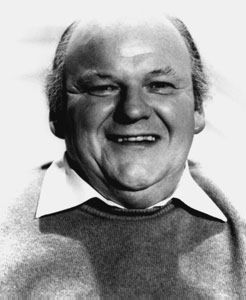
Roy Mitchell Kinnear was an English character actor and comedian. He was known for his acting roles in movies such as Henry Salt in the 1971 film Willy Wonka & the Chocolate Factory, Algernon in The Beatles' Help! (1965), Clapper in How I Won the War (1967), and Planchet in The Three Musketeers (1973). Kinnear reprised the role of Planchet in the 1974 and 1989 sequels, and died following an accident during filming of the latter.

The British Film Institute (BFI) is a film and television charitable organisation which promotes and preserves film-making and television in the United Kingdom. The BFI uses funds provided by the National Lottery to encourage film production, distribution, and education. It is sponsored by the Department for Culture, Media and Sport, and partially funded under the British Film Institute Act 1949.

Nineteen Eighty-Four is a British television adaptation of the 1949 novel of the same name by George Orwell, originally broadcast on BBC Television in December 1954. The production proved to be hugely controversial, with questions asked in Parliament and many viewer complaints over its supposed subversive nature and horrific content. It starred Peter Cushing, Yvonne Mitchell, Donald Pleasence and André Morell.

The Grove Family was a British television series soap opera, generally regarded as the first of its kind broadcast in the UK, made and broadcast by the BBC Television Service from 1954 to 1957. The series concerned the life of the family of the title, who were named after the BBC's Lime Grove Studios where the programme was made.

Nice Time is a 1957 documentary film made by Alain Tanner and Claude Goretta in Britain and included in the third Free Cinema programme at the National Film Theatre, London in May 1957. It won the Experimental Film prize at the film festival in Venice and much critical praise.

Patrick George Magee was a Northern Irish actor. He was noted for his collaborations with playwrights Samuel Beckett and Harold Pinter, sometimes called "Beckett's favourite actor," as well as creating the role of the Marquis de Sade in the original stage and screen productions of Marat/Sade.

A Man for All Seasons is a 1966 British historical drama film directed and produced by Fred Zinnemann, adapted by Robert Bolt from his play of the same name. It depicts the final years of Sir Thomas More, the 16th-century Lord Chancellor of England who refused both to sign a letter asking Pope Clement VII to annul Henry VIII of England's marriage to Catherine of Aragon and to take an Oath of Supremacy declaring Henry Supreme Head of the Church of England.
Charles Herbert Frend was an English film director and editor, best known for his films produced at Ealing Studios. He began directing in the early 1940s and is known for such films as Scott of the Antarctic (1948) and The Cruel Sea (1953).
Patrick Keiller is a British film-maker, writer and lecturer.
Chris Petit is an English novelist and filmmaker. During the 1970s he was Film Editor for Time Out and wrote in Melody Maker. His first film was the cult British road movie Radio On, while his 1982 film An Unsuitable Job for a Woman was entered into the 32nd Berlin International Film Festival. His films often have a strong element of psychogeography, and he has worked frequently with the writer Iain Sinclair. He has also written a number of novels, including Robinson (1993).
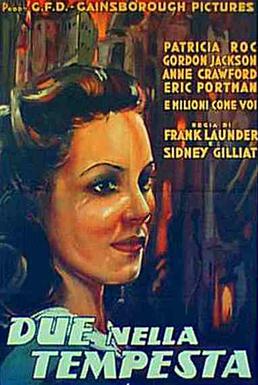
Millions Like Us is a 1943 British propaganda film, showing life in a wartime aircraft factory in documentary detail. It stars Patricia Roc, Gordon Jackson, Anne Crawford, Basil Radford, Naunton Wayne, Moore Marriott and Eric Portman.

The Gentle Sex is a 1943 British black-and-white romantic comedy-drama war film, directed by Leslie Howard and Maurice Elvey and narrated by Howard. It was produced by Concanen Productions, Two Cities Films, and Derrick de Marney. It was Howard's last film before his death.

Thursday's Children is a 1954 British short documentary film directed by Guy Brenton and Lindsay Anderson about The Royal School for the Deaf in Margate, Kent, UK, a residential school then teaching lip reading rather than sign language. Apart from music and narration, the film is nearly silent and focuses on the faces and gestures of the little boys and girls. It features methods and goals not now used, and notes that only one child in three will achieve true speech. Filmmakers Lindsay Anderson and Guy Brenton were unable to gain distribution for the film until it won an Oscar in 1955 for Documentary Short Subject. The Academy Film Archive preserved Thursday's Children in 2005.

Robinson in Ruins is a 2010 British documentary film by Patrick Keiller and narrated by Vanessa Redgrave. It is a sequel to Keiller's previous films, London (1994) and Robinson in Space (1997). It documents the journey of the fictional title character around the south of England. It premiered at the 67th Venice International Film Festival in September 2010.
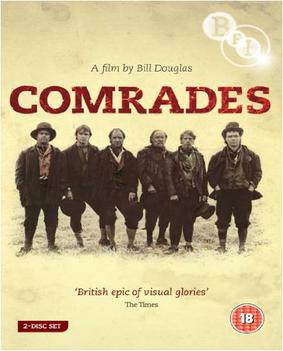
Comrades is a 1986 British historical drama film directed by Bill Douglas and starring an ensemble cast including Robin Soans, Phil Davis, Keith Allen, Robert Stephens, Vanessa Redgrave and James Fox. Through the pictures of a travelling lanternist, it depicts the story of the Tolpuddle Martyrs, who were arrested and transported to Australia in 1834 for trying to improve their conditions by forming an early form of trade union. It was Bill Douglas's last film.
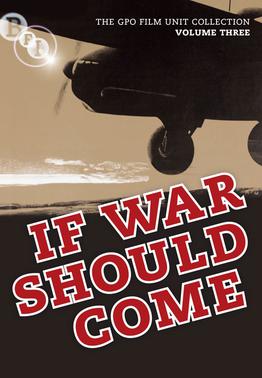
Men of the Lightship is a short propaganda film produced by the Crown Film Unit for the British Ministry of Information in 1940, the year after the beginning of the Second World War. It dramatises the bombing of the East Dudgeon lightship by the Luftwaffe on 29 January 1940 and was designed to portray Germany as a barbaric enemy. An opening narration explains the traditional understanding of lightships as neutral vessels during war.
ITV Sunday Night Theatre, originally titled ITV Saturday Night Theatre and often shortened to simply Sunday Night Theatre or Saturday Night Theatre, is a British television anthology series screened on ITV, whose episodes were contributed by various companies in the ITV network.
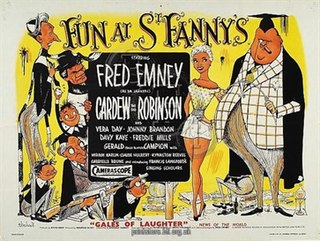
Fun at St. Fanny's is a 1955 British comedy film directed by Maurice Elvey and starring Fred Emney, Cardew Robinson and Vera Day. The film revolves around the teachers and students at St Fanny's private school. It was based on Robinson's "Cardew the Cad" character which he created in 1942 and was featured in the BBC's Variety Bandbox programme.
References
- ↑ Wigley, Sam (19 August 2021). "10 great films that don't have a Wikipedia page". British Film Institute .
- ↑ "London, 1994, directed by Patrick Keiller". Time Out . 6 February 2019. Retrieved December 12, 2022.
- 1 2 "London, 35mm, 85 mins". Patrick Keiller . 10 April 2020. Retrieved December 12, 2022.
- 1 2 3 "Patrick Keiller on London: "I've always seen urban self-congratulation as a symptom of underlying problems"". BFI . Retrieved December 12, 2022.
- 1 2 "FILM REVIEWS / A further tale of the city: Sheila Johnston on the new releases, including Patrick Keiller's London, a capital new movie from a smoky old town". The Independent . Retrieved December 12, 2022.
- 1 2 "BFI Screenonline: London (1994)". BFI Screenonline. Retrieved December 12, 2022.
- ↑ Yates, Robert (30 November 2012). "Patrick Keiller on London: The original interview". The Guardian . Retrieved December 12, 2022.
- ↑ "London (1994)". Rotten Tomatoes . Fandango . Retrieved December 12, 2022.
- ↑ "Best British Movies". Time Out . Retrieved December 12, 2022.
- ↑ Redgrave In Ruins for Keiller Screen Daily. 17 February 2010
- ↑ "Patrick Keiller: The Robinson Institute". Jamie Fobert Architects. Retrieved December 12, 2022.
- ↑ "London". FUEL. Retrieved December 12, 2022.